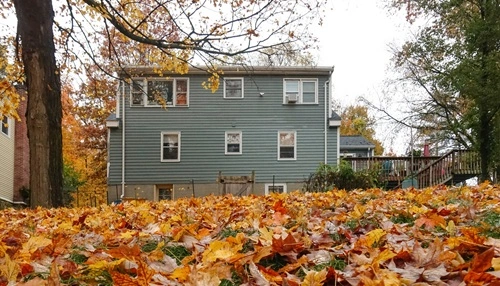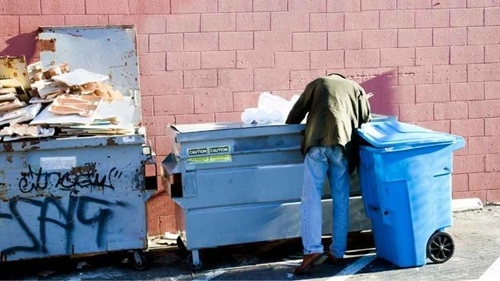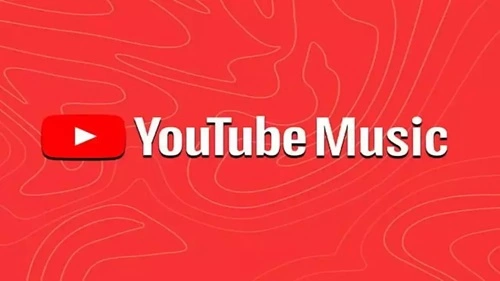When fall arrives, many homeowners across America rake up piles of leaves and wonder — can I just burn them? While burning leaves might feel like an old-fashioned autumn tradition, today it’s regulated or outright illegal in most parts of the United States.
Whether or not you can burn leaves legally depends on where you live, local air quality rules, and seasonal fire restrictions. Let’s look at how federal, state, and local laws address backyard leaf burning and what penalties you could face for breaking them.

Federal Law: What the EPA Says
The U.S. Environmental Protection Agency (EPA) oversees air quality under the Clean Air Act (CAA). While the EPA does not have a single, nationwide rule banning leaf burning, its regulations and guidance strongly discourage open burning of yard waste because of the air pollution it creates.
Under 40 CFR § 49.131 (Open Burning Rule) and related EPA policies:
- Open burning is illegal when it produces dense smoke or noxious fumes, or when it includes prohibited materials like household waste or treated wood.
- Burning organic matter (like leaves or brush) may be allowed only under specific local or tribal regulations that meet federal air quality standards.
- The EPA warns that leaf smoke contains fine particulate matter (PM2.5), carbon monoxide, and even small amounts of toxic hydrocarbons, all of which harm lungs and the environment.
In short: the EPA doesn’t automatically ban burning leaves — but it gives states the authority to regulate or prohibit the practice to protect public health and air quality.
State and Local Laws: The Real Deciding Factor
Most states have their own open burning laws that define when and how you can burn leaves — if at all. Here’s how a few states handle it:
- California: The California Air Resources Board prohibits most residential leaf burning. Burning is allowed only with local air district approval and proper burn permits.
- New York: Open burning of leaves and yard debris is banned statewide under the Department of Environmental Conservation (DEC) regulations.
- Texas: The Texas Commission on Environmental Quality (TCEQ) allows burning of natural vegetation (including leaves) on your property under certain conditions — but not during burn bans or in restricted air quality zones.
- Illinois: Open burning of leaves is prohibited in many cities and suburbs. Rural areas may allow it under limited conditions and weather controls.
- Florida: The Florida Forest Service allows leaf burning with a yard waste authorization, provided the fire is 150 feet from other occupied buildings and safely contained.
Most counties, towns, and municipalities add their own rules. Many cities ban burning entirely within city limits and require residents to use municipal leaf collection or composting programs instead.
Penalties for Illegal Leaf Burning
Violating open burning laws can lead to civil or criminal penalties, depending on your state and local ordinances. Typical consequences include:
- Fines ranging from $100 to over $1,000 per offense
- Fire department response fees if your burn gets out of control
- Environmental citations from state agencies for air quality violations
- Possible misdemeanor charges for repeated or willful violations
If your leaf fire spreads to neighboring properties or structures, you could also face civil liability for damages or injuries.
Why Burning Leaves Is Restricted
Leaf smoke isn’t as harmless as it seems. Burning leaves releases:
- Fine particulate matter (PM2.5) that irritates lungs and triggers asthma
- Carbon monoxide and hydrocarbons that reduce local air quality
- Smog-forming pollutants that worsen ozone levels
Additionally, dry leaves can quickly ignite nearby vegetation or property, leading to wildfires. That’s why most communities prefer safer alternatives such as curbside pickup, composting, or mulching.
FAQs: Burning Leaves in Your Backyard
Q1. Is burning leaves always illegal?
Not always — but in most suburban and urban areas, yes. Some rural counties still allow it under specific conditions with a burn permit.
Q2. Do I need a permit to burn leaves?
In most states, yes. Permits are usually issued by your local fire department or environmental agency and may only be valid during safe weather conditions.
Q3. What happens if I burn leaves without a permit?
You can be fined, required to extinguish the fire, or even charged with violating air quality or fire safety laws.
Q4. Are there “burn ban” seasons?
Yes. Many states issue seasonal burn bans during dry or windy periods to prevent wildfires. Burning during a ban can result in heavy penalties.
Q5. What’s the best legal alternative to burning leaves?
Use municipal leaf collection, mulch the leaves into your lawn, or compost them. Many cities even provide free compost bins or collection services.
Q6. Who should I contact to confirm local rules?
Check with your local fire department, county air quality office, or state environmental protection agency before burning anything.
Bottom Line
While burning leaves may once have been common, today it’s heavily regulated or banned across much of the U.S. Because of the fire hazards and air pollution it causes, you should always check local laws and consider safer disposal options.
When in doubt — don’t burn. Composting and recycling your leaves keeps your community cleaner, healthier, and fully compliant with the law.

